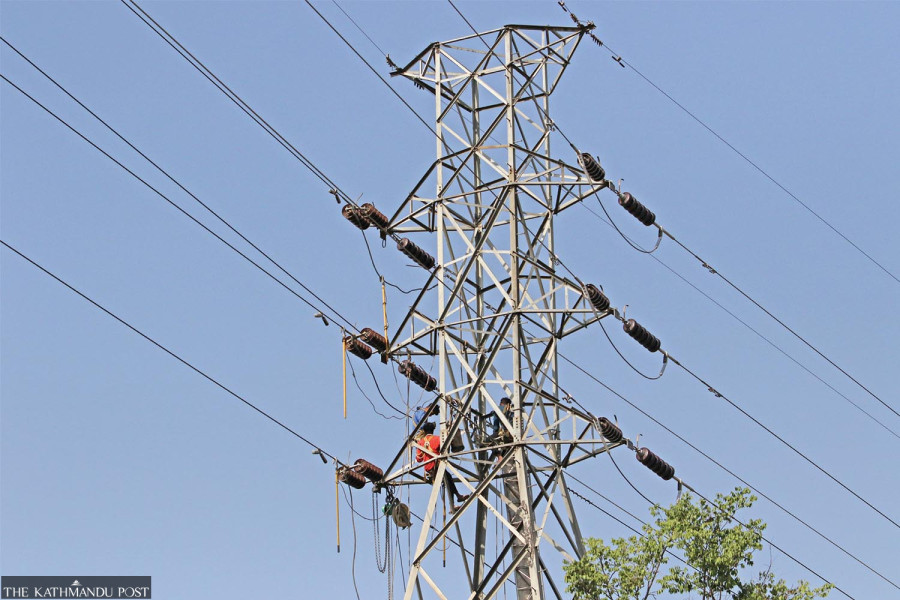National
Draft bill on granting power trading licence to private sector reaches Cabinet
Government had withdrawn the previous bill before polls last year after it remained pending at upper House for two years.
Prithvi Man Shrestha
The government has taken an early step in introducing a new electricity bill aiming to license the private sector to trade electricity.
The Electricity Act-1992 has no provision for allowing the private sector to engage in electricity trading. As per the Act, private sector can get the licence only for survey, generation, transmission and distribution of electricity. The new electricity bill will widen the scope.
“We sent a draft bill to the Cabinet late last week,” Madhu Bhetuwal, spokesperson for the Ministry of Energy, Water Resources and Irrigation. “Besides granting trading licences to the private sector, the bill also provisions open access to the transmission infrastructure.”
Open access means every trading licence holder can access the country's transmission infrastructure without discrimination. Currently, the Nepal Electricity Authority solely owns the country’s transmission infrastructure.
Bhetuwal said the draft bill also suggests measures to promote investment in the energy sector and the means to help projects to be developed at lower costs.
Nearly a year after the government withdrew the electricity bill that had been pending at the National Assembly, preparations are afoot to introduce a new bill.
The withdrawn bill, which also had provisions for granting trading licences to the private sector, remained in the Assembly for two years as the government and lawmakers paid little attention to it.
Following the announcement of elections to the House of Representatives on November 20 last year, the government had withdrawn the electricity bill among several other bills from Parliament on September 16.
The government then tried to issue trading licences to the private sector by forwarding an ordinance to the President. Former president Bidya Devi Bhandari did not authenticate the ordinance, pushing it to expire.
Ordinances are issued by the government to introduce laws when Parliament is not in session. An ordinance has to be replaced by a bill within 60 days of the first sitting of the legislature. Failure to do so will result in the ordinance becoming void.
The government is once again working on a new bill three years after the first was introduced.
Private sector people are disappointed by the delay in introducing the new law that allows them trading licences. “We sense no urgency in introducing the new law, more than six months since this government was formed,” said Ashish Garg, vice-president of the Independent Power Producers’ Association of Nepal (IPPAN).
Both government officials and private sector people admit that having private players would widen the scope of power trading within the country and outside. Currently, only the NEA is responsible for trading electricity with India.
Since India allowed Nepal to sell electricity through the Indian Energy Exchange, an electronic trading platform, in November last year, the private sector has also shown greater interest to export power to India.
Eying a trading licence, about half a dozen companies have already been registered. Private sector companies have started talks with Indian companies for trading of electricity once Nepal licenses them to do that.
For example, Nepal Power Exchange Limited, a private sector company, and India’s Manikaran Power Limited signed a memorandum of understanding on energy trading in January 2002. The deal ends the monopoly of the state-owned Nepal Electricity Authority in energy trade.
Nepal Infrastructure Development Bank also promotes a power trading company. The Power Trading Company Limited, a subsidiary of the NEA, received the permit for cross-border trading of electricity in December 2021. The company received the licence through a Cabinet decision.
“Private sector can explore new markets in India and elsewhere when they get the trading licence,” said Garg.




 20.12°C Kathmandu
20.12°C Kathmandu















